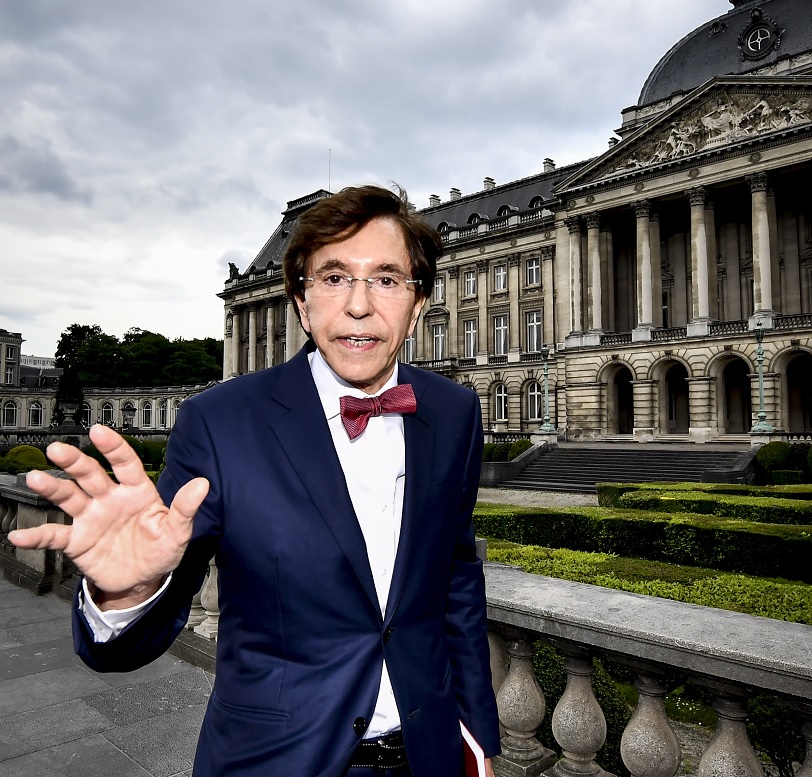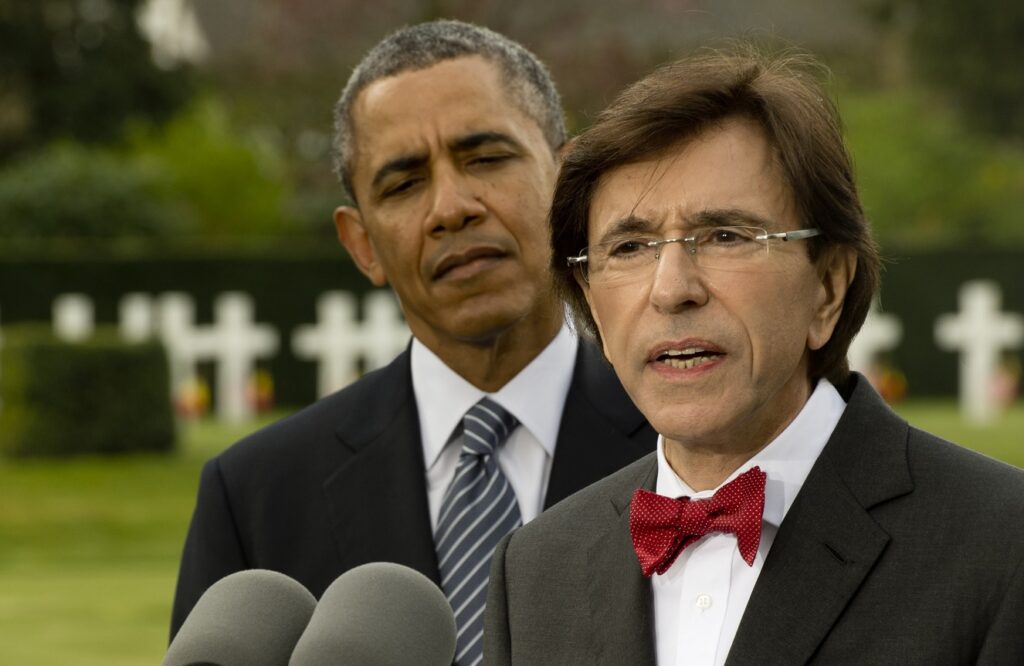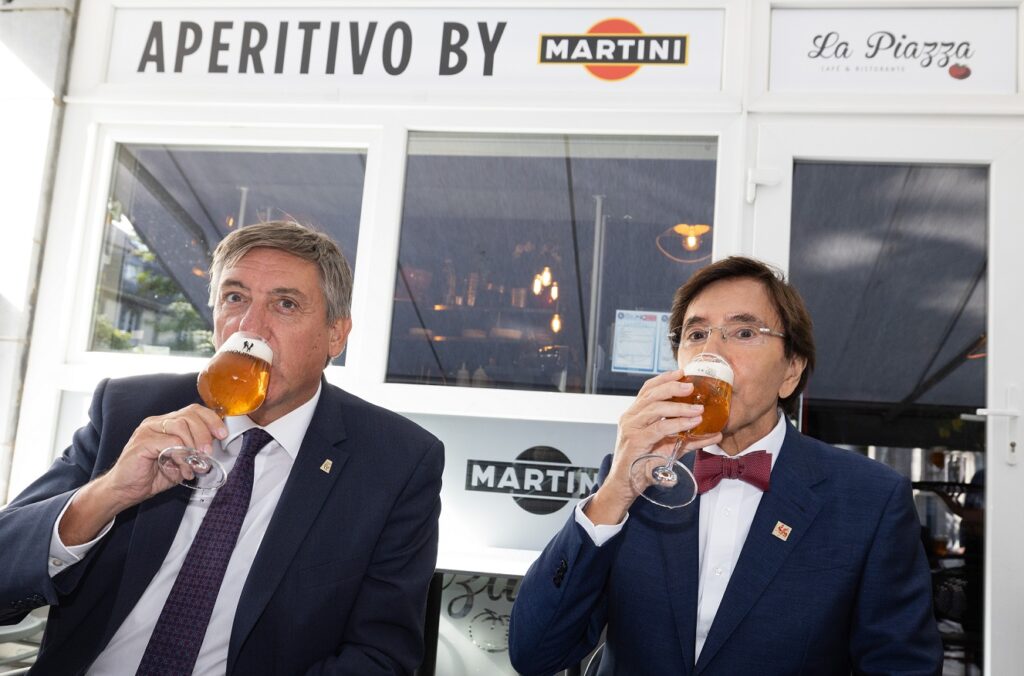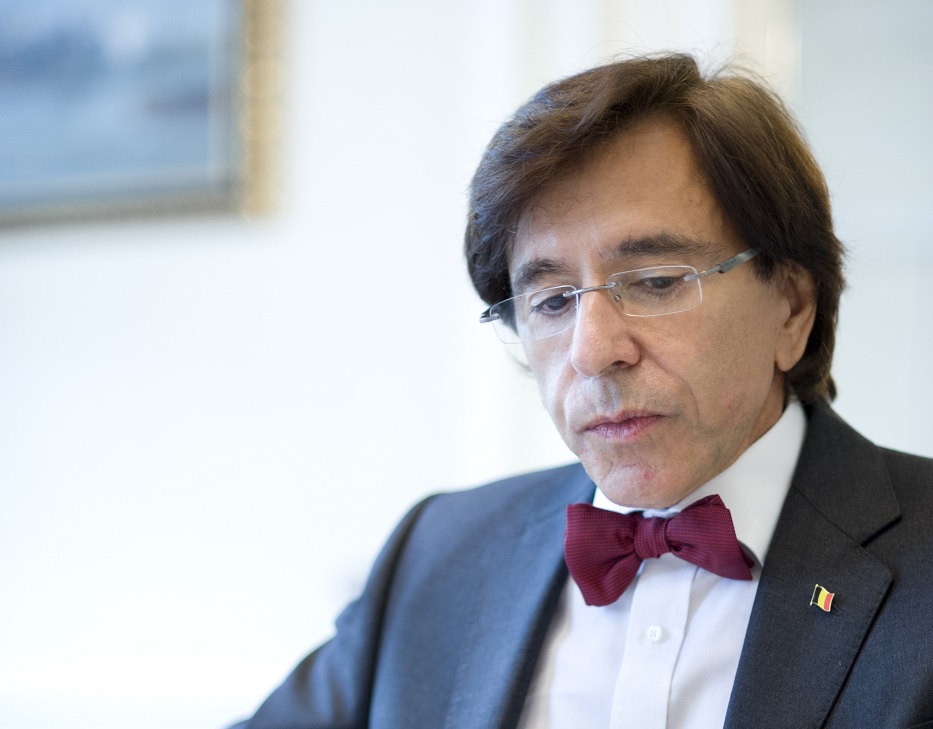The tourist office in Mons and other gift shops in the city are proud enough of Elio Di Rupo to sell colourful bow ties, in a tribute to the former Mayor and Prime Minister’s signature sartorial choice. Di Rupo himself smiles when he is told about this reference to his individualism. “What’s important is to be who we are,” he says.
However, Di Rupo, 72 – now wrapping up his third term as Minister-President of Wallonia – is arguably best known and admired for getting into politics in the first place against all odds.
Born in the industrial heartland town Morlanwelz, the son of poor Italian immigrants, he lost his father in a car crash when he was just one year old. His jobless mother, who could neither read nor write, struggled to raise her family, so three of her seven children went to a nearby orphanage. “If I had a destiny at that time, it certainly wasn't on the Rue de la Loi or the Egmont Palace,” he writes in his autobiography Le Labyrinth du Pouvoir (The Labyrinth of Power), published in January.
Di Rupo’s early life was defined by a grit and determination that would later become his political hallmark. Education was his salvation from poverty. He studied chemical engineering at the University of Mons-Hainaut (now the University of Mons) culminating with a doctorate while lecturing part-time at the University of Leeds in the UK.
Di Rupo took an interest in politics early on, joining the Socialist Party (Parti Socialiste or PS) at age 17 and entering politics in his early 30s. His ascent within the party was swift, and he soon became a prominent figure known for his charisma and strategic thinking. He became a ministerial aide and then a Mons municipal councillor in Mons before being elected to the Chamber of Representatives and then to the Senate. By 1994, he was Deputy Prime Minister.
Outing himself
Around the same time, his personal life came into the spotlight, which prompted Di Rupo to publicly out himself in 1996. When asked at the time if he were gay, he boldly replied, “Yes, so what?”
While it was an open secret in political circles, Di Rupo’s public confirmation was ground-breaking. Openly gay politicians were few and far between in the 1990s, so his candid acknowledgement of his sexuality marked a watershed moment, not just for Belgium but for Europe at large. “I’m not an activist,” he says, looking back at that time. “I am what I am.”

Di Rupe at the Royal Palace
Di Rupo’s authenticity paved the way for more LGBTQ+ representation in Belgian and EU politics, most recently in France when 34-year-old Gabriel Attal became France’s Prime Minister. “Now with Attal the first thing that they say is he is the first openly gay Prime Minister,” Di Rupo says. “What is important is to be as we are, to show that we can assume the function and responsibilities.”
But for all the progress, Di Rupo says the battle for gay rights is far from over. “We have to pay attention because the far right is against it, along with some countries like Hungary and Poland,” he says. “We have a lot of work to do.”
The EU and NGOs can push for change, but Di Rupo says this has a limited effect. “External influence doesn’t work in a country. The revolution has to come from inside the country. So, what is important is to have progressive people in each country from all political parties,” he says.
In any case, coming out did not affect Di Rupo’s career. In 1999, he became Minister-President of Wallonia (as well as 2005-07 and 2019 to present), while also serving as PS President (from 1999 to 2011 and from 2014 to 2019).
In 2000, Di Rupo returned to local politics as mayor of Mons – a position he enjoyed for 18 years (three terms). His efforts to develop the city led to it being named in 2015 the European Capital of Culture. He still lives in the city. “Mons remains a cultural city, not only with its activities but also with its heritage from the 15th to 21st centuries,” Di Rupo says, adding that it’s a city of students (15,000 at two universities and 14,000 in school) among its roughly 100,000 inhabitants.
Primetime
Di Rupo had been in Belgian politics for more than three decades before he became Prime Minister, but his elevation to the top job in 2011 came after one of the country’s most bizarre and embarrassing periods. It came in the aftermath of the June 2010 federal election, when the country endured 541 days of political stalemate over a new government (effectively forcing the previous coalition to remain in power in an 18-month caretaker capacity).
Di Rupo was a surprise choice for Prime Minister given the prevailing narrative that the country needed a Dutch-speaking leader to bridge the linguistic gap. However, he seized the moment, breaking the deadlock to become the first Francophone Prime Minister in 30 years – and the first socialist premier since 1974 – as well as one of the world’s first openly gay leaders.

With then US President Barack Obama at the World War 1 cemetery in Waregem
Unsurprisingly, Di Rupo rates his term as Prime Minister as his career highlight. “In 2010, after the elections, the biggest party in the parliament was Dutch-speaking, a nationalist Flemish party that wanted to divide Belgium and create the Republic of Flanders as a member of the European Union,” he recalls. “We worked for 541 days to set up a federal government. We succeeded and kept the country together.”
His time in the Rue de la Loi was characterised by the challenges of steering Belgium through the Eurozone crisis. He faced a Herculean task to restore fiscal responsibility: Di Rupo implemented a series of bold but pragmatic economic reforms, balancing austerity with investments in sustainable development. His policies contributed to Belgium's economic recovery and showcased a model that other European nations would later consider in their own crisis management strategies. He was also the Prime Minister when King Philippe was crowned after his father, Albert II, abdicated.
However, in the May 2014 elections, in which the PS lost three seats, Di Rupo knew his time was up. His successor, Charles Michel of the francophone liberal MR party, took office in October of that year. Di Rupo, however, continued to be active within the PS. In Wallonia, where his term as Minister-President runs until June, he says he wants to make the region “a model of sustainable development, effectively linking economic performance, social protection and environmental protection.”
European ambitions
Di Rupo may be well past his pension age, but he still has energy to spare, boasting that he works out regularly at Basic Fit gyms. And his political career is far from over: he will run again in the June elections, but for the European Parliament: he heads the PS list. If elected, it would be his second stint: he was briefly an MEP between 1989 and 1991.
The wider socialist family in Europe has been on a slow downward trek, losing MEPs over successive elections. Di Rupo acknowledges this, noting that apart from in Spain, the socialists are losing ground in Portugal and France, even if there were upticks in the most recent Dutch and German elections. “We will see what is possible to do,” he says.

With Flemish Minister President Jan Jambon at Namur last August
One of his goals is to cement cohesion policy for all European regions. But he is also looking at foreign policy. “We also have to see what we can do with the situation in Ukraine and the position of Putin – not only against Ukraine – and what will happen in three months, six months and one year.” He is concerned about European security - and the uncertainty of the forthcoming US presidential election.
As for PS, Di Rupo predicts they will do better than last time in both regions in Belgium but not at the European level. “It remains difficult as we have too few heads of state or governments that are socialist and the influence of European socialist parties is not very powerful I’m afraid. But we’re doing our best with our ideal.”
Globally, Di Rupo is wary of the wave of right-wing politics. “It’s true, unfortunately, because we have a lot of populists and I think that people are afraid about our global situation. The world is really complex, but people want to have a simple answer.” He likens the mentality to that of the 1920s in Italy and the 1930s in Germany. “It’s not exactly the same but the far right has for the moment the possibility of increasing people’s fears.”
Di Rupo says he’s not concerned about Belgium’s future despite the rise of Flemish nationalists seeking independence. “I’m confident because there is a difference between the political parties and the population,” he says. “The majority of the Flemish population don’t want to divide the country. And the French speakers want to keep unity. Maybe we are going to give the regions more significant competencies but there is no consensus in the country to divide the country.” Besides, he says, nationalists will still have to work with the French-speaking political parties – none of which want to split.
Meanwhile, Brussels, he says, is a hidden European gem. “Belgium is a fascinating country and Brussels is one of the most cosmopolitan cities,” Di Rupo notes. “When foreigners come to Belgium, usually after a few months they are convinced that it’s a very good place – maybe one of the best.”
Like many, he also grumbles about the traffic in the city. “It’s absolutely impossible in Brussels,” he says. And, like many more, he has something to say about Belgian weather. “We would like to have more sun,” he says. “But we cannot have everything.”

